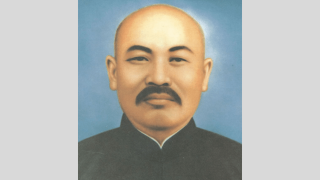
Confident states do not try to control every urge toward the supernatural felt by their citizens. Why is Xi Jinping so concerned about independent religions?
Marco Respinti
The last week of 2018 saw yet another embarrassing spectacle of China’s attack on religion. In Yunnan Province, on China’s southern border with Myanmar and Thailand, three more mosques were shut down by local authorities. The reason given? The mosques were providing “illegal religious education” to local believers.
And what makes the religious education provided at the mosques “illegal?” The mosques are independent, not under the control of state authorities and not abiding by the new policy of “sinicization,” or the transforming of global religions into a specifically Chinese variant.
Chinese President Xi Jinping has been promoting a policy of “sinicization,” consisting of at least four key points: 1.) the promotion and teaching to believers of the Chinese constitution and Chinese law, 2.) the inclusion of flag-raising ceremonies and national anthem singing in religious services, 3.) the preaching of “core socialist values” as the ethical basis of the religion, and 4.) the promotion of the superiority of Chinese culture over other cultures.
What results is a bastardized religion, keeping the outward effects of the practices of Christianity, Buddhism, Islam, or Daoism, but substituting a banal core of beliefs and attitudes across all religions. The end result of “sinicization” would be a patriotic cult, controlled by the state, dressed in different robes in different places, but ultimately worshiping the same god: the Chinese nation and state.
According to a South China Morning Post article on December 31, authorities in Yunnan province closed three mosques established by the Hui Muslim ethnic minority in the region. Local government spokesmen would not comment on whether any believers were being held, or whether the mosques would be demolished, as has happened recently in other areas. These actions in Yunnan followed other recent moves to suppress Hui Muslim believers in the north of China, in Ningxia and Gansu provinces, where mosques and Arab-language schools were closed.
Muslim believers are not the only targets of the “sinicization” program. Christian churches have also faced a series of obstacles and persecutions, from having crosses and icons torn down, to having Bible sales prohibited, to even having a revised version of the Bible printed and representations of the Ten Commandments altered to become “Nine Commandments.” Inspectors are sent to monitor churches and temples, and any building detail or sermon or class not conforming to strict government rules open the religious congregation and its leaders to fines, arrest, and suppression.
A state with the support of its people would not be so concerned about how many commandments God issued to Moses.
Christians have been loyal subjects and citizens of diverse governments for 2000 years: from the Roman Empire to medieval monarchies to modern democracies, in Latin Europe, Germanic Europe, Slavic Europe, the Near East, India, Ethiopia, the Americas, and more. Christ’s directive to “Render unto Caesar what is Caesar’s” formally established for Christianity two spheres: a spiritual and a secular realm. The secular realm is reserved to the state, and Christians are encouraged to be loyal and respectful to legitimate authority.
Muslims, as well, have a 1300-year history of being loyal subjects and citizens under rulers and in cultures of Arab, Turkish, Persian, Berber, Indian, and even Chinese nationality. Centuries of empires, monarchies, and republics have been able to trust their Muslim believers. Why can’t China?
The effort to “sinicize” major world religions is not the act of a confident and secure country, growing and taking its place on the world stage as a serious player. It is the act of a weak country, paranoid and desperate, struggling to keep things together a little while longer.
Source: Bitter Winter / Marco Respinti



